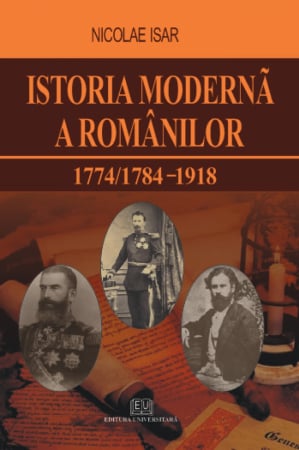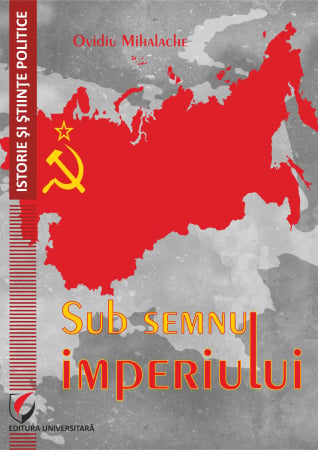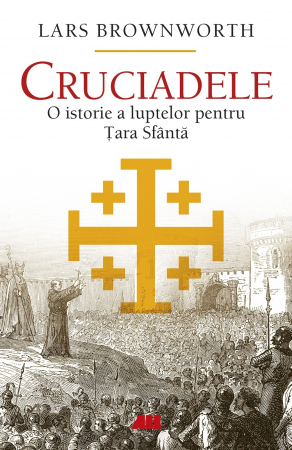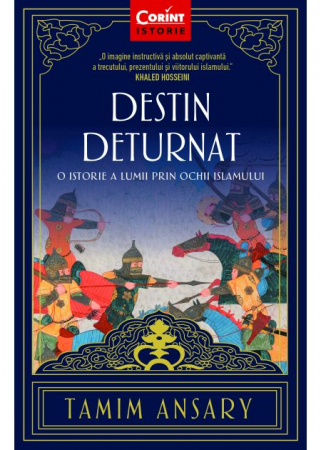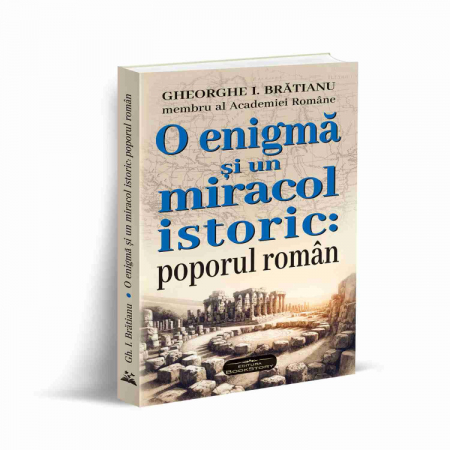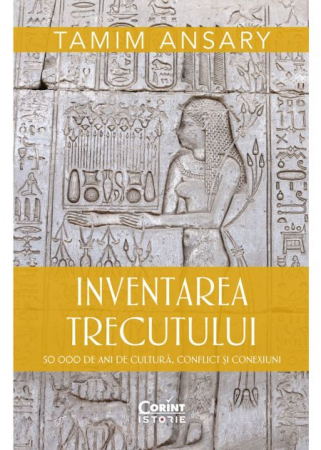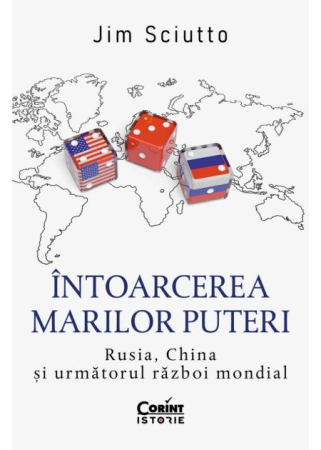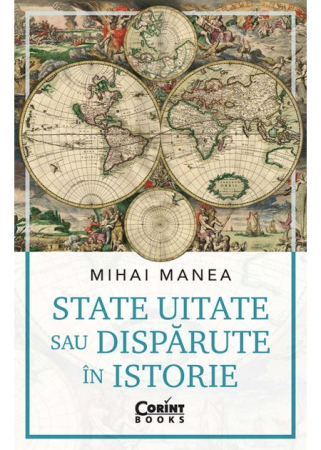6359.png) Diplomacy and Poetry - the European Contribution of Scarlat A. Cantacuzino (Charles-Adolphe Cantacuzène)
Diplomacy and Poetry - the European Contribution of Scarlat A. Cantacuzino (Charles-Adolphe Cantacuzène)
6359.png)
ISBN: 978-606-28-0770-2
DOI: 10.5682/9786062807702
Publisher year: 2018
Edition: I
Pages: 176
Publisher: Editura Universitară
Author: Mihaela Roco, Mihail C. Roco
- Description
- Download (1)
- Authors
- Content
- More details
- Reviews (0)
The volume presents the remarkable but lesser known life and work of Scarlat A. Cantacuzino (literary name Charles-Adolphe Cantacuzène, called by friends Ch-Ad), a Romanian personality with European dimensions. His personality is at the confluence between diplomacy and literature (poetry, literary criticism, essays, aphorisms, bibliophile), continuing the cultural and historical tradition of the family. The testimonies selected from publications and original materials about the literary works and diplomatic activities that give a living context of the life and activity of the distinguished diplomat and poet are gathered. The book includes Ch-Ad's testimonies in his own words about opera, diplomacy, friendship and his correspondence in verse with other writers.
The authors
Academician Serban Cioculescu: "Of the Romanian-speaking Romanian symbolist poets, the most notable of course was Charles-Adolphe Cantacuzène ..."
Academician Razvan Teodorescu: "An exceptional noble figure"
Stéphane Mallarmé, poet: "Rarity, summarized here by magic ..."
Gustave Kahn, writer: "Charles-Adolphe Cantacuzène is one of the most original poets."
Mariana Lazar, historian: "In the context of the centenary of the Great Union, we consider important for the collective memory the evocation of personalities who contributed in various fields to the establishment of modern Romania ... Scarlat A. Cantacuzino, through his special diplomatic activity .. ., Represented one of these personalities with European openness, a fine diplomat, with a special role in promoting Romania's interests."
Paul Aeschimann, historical critic: "French poet and Romanian diplomat, one of the most brilliant representatives of the European elite".
-
Diplomacy and Poetry - the European Contribution of Scarlat A. Cantacuzino (Charles-Adolphe Cantacuzène)
Download
MIHAELA ROCO
Doctor in psychology, as head of promotion, scientific researcher at the Institute of Psychology of the Romanian Academy since 1969 and university professor at the University of Bucharest after 1993, recognized for his contributions in the psychology of creativity, psychology of religion and emotional intelligence.
MIHAIL C. ROCO
Doctor of Science and Engineering, University Professor, Founder of Nanotechnology, Honorary Member of the Romanian Academy since 2011, Member of the Swiss Academy of Engineering Sciences since 1999 and Member of the European Academy of Sciences and Arts since 2017; has two children, Constance Armanda Roco (PhD in microbiology) and Charles Michael Roco (PhD candidate in biomedicine).
Foreword, Razvan Theodorescu / 7
Preface. Cantacuzinii in the Romanian society, Mariana Lazar / 8
Synopsis (in Romanian, French and English) / 13
Chapter 1. Scarlat A. Cantacuzino: Biographical note (in Romanian, French and English) / 19
Chapter 2. Testimonies in his own words / 25
2.1. Two passions / 25
2.2. Writings in over half a century / 28
2.3. Arriving in Paris / 35
2.4. The beginnings in the diplomatic career / 36
2.5. About family and friends / 37
2.6. About the press and writers / 47
2.7. Epitaph / 53
Chapter 3. Patriotic diplomat and subtle French poet / 55
3.1. A link in family traditions / 55
3.2. Studies / 56
3.3. Diplomat / 57
3.4. Poet, essayist and literary critic / 60
3.5. Personal charm / 67
3.6. Comments (Serban Cioculescu, Marin Sorescu, Alexandra Serban) / 68
3.7. Prologue / 70
Chapter 4. Ch-Ad Poems in Translation / 71
4.1. Selection of poems from Ch-Ad published between 1986-1943 / 71
4.2. Translations by Tascu Gheorghiu (1969) / 82
4.3. Translations by Alexandru Andritoiu (1993) / 83
4.4. Translations into other languages / 85
Chapter 5. Aphorisms of Ch-Ad / 87
5.1. Fifty aphorisms / 87
5.2. In translation / 89
Chapter 6. Correspondence and poems dedicated by other writers to Ch-Ad / 91
6.1. In correspondence with literary personalities / 91
6.2. Over 100 writers and literary critics in dialogue with Ch-Ad / 91
6.3. A selection of poems and letters in verse dedicated to Ch-Ad / 95
Chapter 7. Ch-Ad in dialogue with Stéphane Mallarmé and Paul Valéry / 109
7.1. Literary correspondent / 109
7.2. Martea, visiting the Stéphane Mallarmé / 110
7.3. Friendship with Paul Valéry / 118
Chapter 8. Historical and cultural continuity / 137
8.1. A thousand years / 137
8.2. Contributions in the spiral of time / 139
8.3. Two generations before and after Ch-Ad / 151
Chapter 9. Recognitions, tributes and medals / 153
9.1. Books and anthologies about the poet 's publications and personality / 153
9.2. The bibliophile poet / 158
9.3. Medals and other recognitions / 160
References / 166
Appendix: List of volumes published by Charles-Adolphe Cantacuzène (Scarlat A. Cantacuzino) / 172
More than once, the European propensity of the Romanians can be judged by the connections of the political and cultural elites with France, the "big sister", Latin in the West. Unlike social origin, from Elena Vacarescu and Martha Bibescu, to Panait Istrati, Eugen Ionescu and Emil Cioran, the francophilia of the "Latins of the Orient" was constant and recognized.
To a large extent, this reality is illustrated by Charles Adolphe Cantacuzène or, to put it more bluntly, by Scarlat Cantacuzino. Belonging to the noble nation of great prestige of the archons from the Byzantine capital, nephew of the Pasoptist caimacam Constantin Cantacuzino, cousin of the great scientist and patriot Ioan Cantacuzino, close relative of two prime ministers and leaders of rival parties - Dimitrie Sturdza and Petre Carp -, Scarlat Cantacuzino now appears to us - through an important number of documents - as an exceptional noble figure, worthy of "Little Paris" and "Belgium of the Orient", thanks to this volume cared for by his daughter's nephews, distinguished intellectuals Mihaela and Mihail Roco . "Le sybarite volupteux", a student at the Parisian college "Louis le Grand", graduated in The Hague, Brussels and especially in Paris - in the clock of 1918 - the relative of Mallarmé and Paul Valéry, Edouard Herriot and Rémy de Gourmont, of Berthelot and Louis Barthou was, especially a refined French-language poet (translated by Stefan Augustin Doinas, Marin Sorescu, Tascu Gheorghiu, Alexandru Andritoiu). It is no coincidence that he was also the author of a book dedicated to that cosmopolitan Walloon nobleman of the Age of Enlightenment, prince of Ligne, lover of the Romans and praiser of the palaces and gardens of Iasi Phanariot.
This European par excellence, a correspondent of Iorga and Proust, author of cultivated aphorisms - I remembered "la gloire doit marcher feux éteints" - died in 1949 after the authorities of the Stalinist era brutally removed him from his elegant house. on the street that bore and bears the name of his friend General Berthelot again. The symbolist poet and the elegant diplomat thus paid the supreme tribute of a sinister epoch that was then established in his country. A country that Scarlat Cantacuzino served brilliantly, illustrating, I repeat, the deeply European dimension.
Acad. Razvan Theodorescu
Vice President of the Romanian Academy
•••
Cantacuzins in Romanian society
In the context of the centenary of the Great Union, we consider important for the collective memory the evocation of personalities who contributed in various fields to the establishment of modern Romania, to affirm national ideals and gain the support of the Great Powers in their fulfillment and recognition.
Scarlat / Charles Adolphe Cantacuzino, through his special diplomatic activity in the Romanian Legations in Paris, The Hague and Brussels (1905-1922) or in the Ministry of Foreign Affairs (1922-1930), through his presence and his approaches in artistic, literary and French political circles, represented one of these personalities with European openness, a fine diplomat, with a special role in promoting Romania's interests. His descent from one of the most representative noble families, Cantacuzino, with an impressive past and a remarkable history, imposed on him a certain conduct and a special responsibility throughout his life and career.
The Cantacuzins, since their first documentary mention in the 11th century, have individualized themselves within the elites of the countries where they lived as outstanding personalities, their noble origin, supported by the idea of a distinction through birth, culture, an appreciable wealth in movable and immovable property and a skilful policy of alliances being the main elements that gave them a certain pre-eminence in society. Over time, they managed to overcome the vicissitudes of the times and proved to be true survivors.
In the Roman lands, where some of them chose to take refuge at the end of the 16th century, the Cantacuzins clearly expressed their consciousness of belonging to an elite group, of the nobility of their family through double descent - from the Cantacuzins of the Byzantine West through father, hence the takeover as a coat of arms of the family of the bicephalous eagle, and from the Bessarabians of Wallachia, on the line of his maternal grandfather, Radu Serban, lord of the country (1601-1611).
The prestige and power of this special family, "Cantacuzena Domus" as it was defined, were strengthened by their initiatives and actions, by kinship, but also by the co-optation within this important power group of other boyars, large and small. The reigns of Serban Cantacuzino (1678-1688), Constantin Brancoveanu (1688-1714) and Stefan Cantacuzino (1714-1716) represented the period of political and cultural supremacy of this family in the Muntenian society, which then knew perhaps the widest receptivity towards European civilization, in all its aspects, in relation to past times and decades to come.
For the Romanian society in general, for the Romanian culture, in particular, the role of the Cantacuzins was special, in terms of openness to other horizons, of a certain secularization of thought. The main representatives of the Romanian cultural elite, they were the most cultivated boyars of their time, paying special attention to the intellectual training of the descendants. The bedfellow Constantin Cantacuzino had the reputation of a man of reading, being open to new ideas of the time, an attitude he passed on to his descendants. The bedfellow's interest in books and culture is also highlighted by the creation of the nucleus of the first boyar library in Muntenia. It will be enriched by his sons and nephews, especially by Constantine, who seems to have inherited it, through his own acquisitions and donations, the content of these books being related to their cultural, philosophical and political concerns.
Constantin, the future stolnic, was also the first representative of the Wallachian elite who studied at the Academy of Padua, acquiring the necessary knowledge so that, later, the intellectual's erudition could be completed with the diplomat's ability.
The founding dimension represented a distinct aspect of the presence of this family in Romanian society, the Cantacuzinos standing out as some of the most important founders, building or rebuilding / renovating at least one church or monastery on their own estates or in cities, for other places of residence. cult being the main donors. They maintained special relations with the Orthodox patriarchs, the Orthodox Church benefiting from the support of these special philanthropists.
The position of the Cantacuzins in society, the consideration they enjoyed in other political circles are proved by granting the status of nobles of the Roman-German Empire, later of the Russian Empire, in relation of course with the interests of these great powers in the area. Their political initiatives, correspondence with the representatives of these empires aimed at acquiring a different status for the Romanian countries, and for their elite a greater freedom in adopting the decisions considered appropriate for the destiny of the Romanians; they entered into a complicated and dangerous diplomatic "game," which ended dramatically for some of them.
In the circumstances of the tragic disappearance of the most important and the alienation of others (1716), for the Cantacuzinos of the eighteenth century, the nephews and great-grandsons of the bedfellow Constantin Cantacuzino, regaining the social and political status held by their predecessors proved difficult missions. For some, such as the great ban Mihai Cantacuzino and his brothers, their initiatives and actions were successful, continuing the tradition of their forerunners of alliance with the Christian states, in order to remove the Ottoman suzerainty over the Roman countries.
The intellectual dimension was a constant of the members of this family even in the modern era, orienting themselves for the education of their children in recognized European centers, such as Vienna and Paris. Their descendants will later stand out as prominent personalities of the Romanian society in various fields, sometimes as innovators, thus managing to re-establish and maintain the prestige of the important family to which they belonged. They also contributed, with their specific abilities and with a special involvement, together with many other Romanians, to the construction of modern Romania.
The modern Cantacuzins also undertook political missions, but also social, economic or cultural projects, and in their capacity as members of the elite, but also as cultured people, they held important decision-making positions in various institutions of the Romanian state.
The nephew of the caimacam Constantin Cantacuzino, Scarlat / Charles Adolf Cantacuzino was limited to that category of the Romanian elite for which a professional career was more important than a political one, assuming, at the same time, continuing the political and cultural tradition of his predecessors.
Completing his education in the French cultural and intellectual environment, Scarlat / Charles Cantacuzino by origin, behavior, manners and discourse was an aristocrat, with affinities, in a way, for the French society of the eighteenth century. Such traits of his personality probably determined him to opt for a diplomatic career, which required a good political culture, communication skills and a special relationship in diverse environments, with decision-making power and influence.
Considering that the best diplomacy is that of salons, for almost two decades, with tact and persuasion, he managed to convert for the cause of Romania influential personalities of the French society, and not only. He established connections not only with the intellectual, artistic or literary world, but also with political and military personalities, with a role in foreign policy decisions; he was invited to the Elysée Palace, as at the luncheon given in 1917 by French President Raymond Poincaré, he knew the French minister in Bucharest, the Count de Saint Aulaire or General Henri Berthelot.
Scarlat / Charles Cantacuzino lived important events, met people with a special role in the evolution of society, be it political, social or cultural. His humanist spirit also determined his somewhat idealistic diplomatic view of relations between states; considers peace as the ultimate goal of mankind, achieved not by force, but by a deep understanding of peoples beyond borders. "Peace ... is a business of tact!" appreciated the diplomat on a mission to the Romanian Legation in Paris during the Great War and the Peace Conference (1919-1920), where the Romanian delegation, through special efforts, managed to obtain international recognition of the Great Union, as the last stage of state completion national roman.
For these reasons, the evocation of the complex personality of the diplomat and the symbolist poet Scarlat / Charles Cantacuzino by publishing this book with a monographic character is considered welcome. We appreciate the initiative of his descendants, Mrs. Mihaela Roco and Mr. Mihail Roco, personalities of scientific life, who continue the intellectual tradition of the family, not to leave in memory the memory of their grandfather.
Dr. in history Mariana Lazar
Cotroceni National Museum

![Diplomacy and Poetry - the European Contribution of Scarlat A. Cantacuzino (Charles-Adolphe Cantacuzène) [1] Diplomacy and Poetry - the European Contribution of Scarlat A. Cantacuzino (Charles-Adolphe Cantacuzène) [1]](https://gomagcdn.ro/domains/editurauniversitara.ro/files/product/large/diplomatie-si-poezie-contributia-europeana-a-lui-scarlat-a-cantacuzino-charles-adolphe-cantacuzne-262-47826.jpg)





